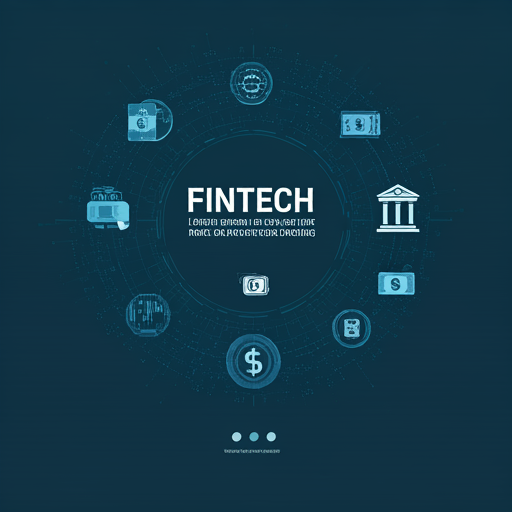Introduction to Fintech Innovations
Definition of Fintech
Fintech , or financial technology, encompasses innovative solutions that enhance financial services. It integrates technology into ofverings such as mobile payments, blockchain, and robo-advisors. These advancements streamline operations and improve user experiences.
Key components include:
These innovations foster efficiency and accessibility. They also challenge traditional banking models. Isn’t that fascinating? Fintech is reshaping how we manage money.
Historical Context
The evolution of fintech began in the late 20th century, driven by technological advancements. This period saw the rise of online banking and electronic payment systems. These innovations transformed consumer interactions with financial institutions. It was a game changer.
Subsequently, the 2008 financial crisis accelerated the demand for alternative financial solutions. Many sought more transparent and efficient services. This shift paved the way for startups to emerge. Isn’t that interesting?
Importance in Modern Banking
Fintech plays a crucial role in modern banking by enhancing efficiency and customer experience. It enables faster transactions and improved accessibility to financial services. This is vital for consumers today.
Moreover, fintech fosters innovation through data analytics and artificial intelligence. These technologies allow for personalized financial solutions. He can benefit greatly from tailored services.
Additionally, fintech promotes financial inclusion by reaching underserved populations. This expands market opportunities for banks. Isn’t that a significant advantage?
Overview of Key Innovations
Key innovations in fintech include blockchain, mobile payments, and robo-advisors. These technologies streamline financial processes and enhance security. They are essential for modern banking.
Additionally, peer-to-peer lending platforms democratize access to credit. This empowers individuals and small businesses. It’s a significant shift in finance.
Artificial intelligence also plays a vital role in risk assessment. It improves decision-making and operational efficiency. Isn’t that impressive?
Blockchain Technology and Its Impact
Understanding Blockchain
Blockchain technology operates as a decentralized ledger, ensuring transparency and security in transactions. This structure minimizes the risk of fraud. It is a significant advancement.
Furthermore, blockchain enables smart contracts, which automate agreements without intermediaries. This reduces costs and increases efficiency. He can save time and resources.
Additionally, its impact extends to supply chain management, enhancing traceability and accountability. This fosters trust among stakeholders. Isn’t that a crucial benefit?
Decentralization in Banking
Decentralization in banking through blockchain enhances security and reduces reliance on intermediaries. This shift minimizes transaction costs. It is a notable change.
Moreover, it allows for peer-to-peer transactions, increasing accessibility for users. He can transact directly with others. This fosters financial inclusion.
Additionally, decentralization improves resilience against systemic risks. It distributes power across the network. Isn’t that a vital advantage?
Smart Contracts and Their Applications
Smart contracts are self-executing agreements with terms directly written into code. This automation reduces the need for intermediaries. It enhances efficiency significantly.
He can utilize smart contracts in various sectors, including finance and real estate. They streamline processes and ensure compliance. This is a practical application.
Additionally, smart contracts improve transparency and trust among parties. They operate on a decentralized network. Isn’t that a compelling feature?
Challenges and Limitations
Blockchain technology faces several challenges and limitations that hinder widespread adoption. Scalability remains a significant issue, as transaction speeds can decrease with network congestion. This can frustrate users.
Additionally, regulatory uncertainty complicates the integration of blockchain into existing financial systems. He must navigate complex legal frameworks. This creates barriers to entry.
Moreover, security vulnerabilities, such as smart contract bugs, pose risks. These flaws can lead to financial losses. Isn’t that a critical concern?
Cryptocurrencies: The New Digital Assets
Introduction to Cryptocurrencies
Cryptocurrencies represent a new class of digital assets, utilizing blockchain technology for secure transactions. This decentralization enhances transparency and reduces fraud risks.
He can trade cryptocurrencies on various exchanges, providing liquidity and investment opportunities. This market is rapidly evolving.
Moreover, cryptocurrencies offer potential for diversification in investment portfolios. They can hedge against traditional market volatility. Isn’t that an intriguing possibility?
Role of Cryptocurrencies in Banking
Cryptocurrencies play a transformative role in banking by facilitating faster and cheaper cross-border transactions. This efficiency reduces reliance on traditional banking systems. It is a notable work shift.
He can also utilize cryptocurrencies for remittances , providing a cost-effective alternative. This enhances financial inclusion.
Additionally, cryptocurrencies enable innovative financial products, such as decentralized finance (DeFi) applications. They offer new investment opportunities. Isn’t that an exciting development?
Regulatory Landscape
The regulatory landscape for cryptocurrencies is complex and evolving, with various jurisdictions implementing different frameworks. This inconsistency creates challenges for compliance. He must navigate these regulations carefully.
Furthermore, regulatory bodies focus on issues such as anti-money laundering (AML) and consumer protection. These measures aim to enhance market integrity. It is a necessary step.
Additionally, clarity in regulations can foster innovation and attract investment. This could benefit the entire industry. Isn’t that a crucial consideration?
Future Trends in Cryptocurrency Adoption
Future trends in cryptocurrency adoption indicate increasing integration into mainstream finance. More institutions are exploring blockchain technology for efficiency. This is a significant development.
He can expect greater regulatory clarity, which may enhance trust. This could attract more investors.
Additionally, the rise of central bank digital currencies (CBDCs) may influence market dynamics. They could coexist with existing cryptocurrencies. Isn’t that an interesting possibility?
Artificial Intelligence in Financial Services
AI Applications in Banking
AI applications in banking enhance operational efficiency and customer service. They analyze vast amounts of data quickly. This improves decision-making processes.
He can benefit from AI-driven chatbots for customer support. They provide instant responses and assistance. This is a valuable resource.
Additionally, AI algorithms detect fraudulent activities in real-time. This increases security for financial transactions. Isn’t that a crucial advantage?
Risk Management and Fraud Detection
Risk management and fraud detection are critical in financial services, where AI plays a pivotal role. It analyzes transaction patterns to identify anomalies. This enhances security measures significantly.
He can rely on machine learning algorithms to assess credit risk. They evaluate borrower profiles more accurately. This reduces default rates.
Additionally, AI systems continuously learn from new data, improving their detection capabilities. This adaptability is essential in combating fraud. Isn’t that a vital feature?
Customer Service Enhancements
Customer service enhancements through artificial intelligence significantly improve client interactions in financial services. AI-driven chatbots provide ⁄7 support, addressing inquiries promptly. This increases customer satisfaction.
He can also benefit from personalized recommendations based on transaction history. This tailored approach fosters loyalty. It is a smart strategy.
Additionally, AI analyzes customer feedback to identify service gaps. This helps institutions refine their offerings. Isn’t that an important advantage?
Ethical Considerations
Ethical considerations in artificial intelligence within financial services are paramoknt. Issues such as data privacy and algorithmic bias must be addressed. This ensures fair treatment of all clients.
He should be aware of transparency in AI decision-making processes. This builds trust with customers. It is essential for credibility.
Additionally, regulatory compliance is crucial to mitigate risks. Institutions must adhere to ethical standards. Isn’t that a fundamental responsibility?
Mobile Banking and Payment Solutions
Rise of Mobile Banking
The rise of mobile banking has transformed financial services significantly. Users can access their accounts anytime and anywhere. This enhances convenience and efficiency.
He can perform transactions, pay bills, and transfer funds instantly. This immediacy is highly valued. It saves time and effort.
Moreover, mobile banking applications often incorporate advanced security features. These protect sensitive information from unauthorized access. Isn’t that a critical aspect?
Digital Wallets and Their Benefits
Digital wallets offer numerous benefits that enhance the payment experience. They enable users to store multiple payment methods securely. This simplifies transactions significantly.
He can make purchases quickly using just a smartphone. This convenience is highly appealing. It reduces the need for cash.
Additionally, digital wallets often provide rewards and cashback incentives. These features encourage consumer loyalty. Isn’t that an attractive option?
Peer-to-Peer Payment Systems
Peer-to-peer payment systems facilitate direct transactions between individuals, bypassing traditional banking intermediaries. This reduces transaction costs significantly. It is a practical solution.
He can send money instantly using mobile applications. This immediacy enhances user experience. It saves valuable time.
Additionally, these systems often include social features, allowing users to split bills easily. This fosters collaborationism among peers. Isn’t that a convenient option?
Security Concerns
Security concerns in mobile banking and payment solutions are paramount. Users face risks such as data breaches and identity theft. This can lead to significant financial losses.
He should utilize strong passwords and two-factor authentication. These measures enhance account security. It is essential for protection.
Additionally, public Wi-Fi networks pose risks for transactions. He must avoid using them for sensitive activities. Isn’t that a critical precaution?
Regulatory Challenges and Compliance
Overview of Financial Regulations
An overview of financial regulations reveals a complex landscape that institutions must navigate. Compliance with these regulations is essential for operational integrity. It ensures trust in the financial system.
He faces challenges such as varying international standards and evolcing laws. This can complicate cross-border transactions. It requires careful attention.
Additionally, regulatory bodies emphasize anti-money laundering (AML) and consumer protection measures. These are critical for maintaining market stability. Isn’t that a fundamental requirement?
Impact on Fintech Innovations
Here are 10 trending article titles for a financial website based on the latest news and analysis of financial trends: No input data
Global Regulatory Differences
Global regulatory differences significantly impact fintech operations. Each jurisdiction has unique compliance requirements and standards. This creates challenges for international expansion.
He must adapt to varying regulations. This can be time-consuming. It requires careful planning.
Additionally, inconsistent regulations may hinder innovation. Companies may struggle to implement new technologies. Isn’t that a notable concern?
Future of Compliance in Fintech
The future of compliance in fintech will likely involve increased automation and advanced technologies. Regulatory technology (RegTech) solutions can streamline compliance processes. This enhances efficiency and accuracy.
He can expect more adaptive regulatory frameworks. These will respond to rapid technological changes. It is a necessary evolution.
Additionally, collaboration between regulators and fintech firms may improve compliance outcomes. This partnership can foster innovation while ensuring safety. Isn’t that a promising direction?
Case Studies of Successful Fintech Companies
Leading Fintech Startups
Fintech startups have transformed the financial landscape. They offer innovative solutions that enhance user experience. Companies like Stripe and Square exemplify this trend. Their platforms simplify payment processing for businesses. Many entrepreneurs benefit from these services. This is a game changer. Robinhood has democratized investing for everyday users. It allows commission-free trading, making investing accessible. This empowers individuals to take control of their finances. The impact is profound. These case studies highlight the potential of fintech. They inspire others to innovate in the industry.
Innovative Banking Solutions
Fintech companies like Chime and N26 offer streamlined banking services. They focus on user-friendly interfaces and low fees. This attracts a younger demographic seeking convenience. Many users appreciate the lack of traditional banking hassles. Digital banks often provide faster account setup. This enhances customer satisfaction significantly. Their innovative approaches challenge established banks. This is a notable shift in the industry.
Lessons Learned from Failures
Many fintech companies have faced significant setbacks. These failures often stem from inadequate market research. Understanding customer needs is important for success. A misalignment can lead to poor product adoption. Lessons from these experiences are invaluable. They highlight the importance of adaptability. Companies must pivot based on feedback. This is essential for long-term viability.
Impact on Traditional Banks
Fintech companies have significantly influenced traditional banking models. They introduce innovative technologies that enhance efficiency. This shift compels banks to adopt digital solutions. Many institutions are investing in fintech partnerships. Such collaborations can improve customer engagement. Traditional banks face pressure to lower fees. This is a direct response to fintech competition. Adapting to these changes is essential for survival.
The Future of Banking in a Fintech World
Predictions for the Next Decade
The next decade will see increased automation in banking. This will enhance operational efficiency significantly. Artificial intelligence will play a crucial role. Many banks will leverage data analytics for insights. Customer personalization will become a priority. This is essential for competitive advantage. Digital currencies may reshape financial transactions. This could change traditional banking dynamics.
Integration of Traditional and Digital Banking
The integration of traditional and digital banking is essential for future growth. This approach enhances customer experience and operational efficiency. Many banks are adopting hybrid models to remain competitive. This strategy allows for greater flexibility in services. Customers benefit from both digital convenience and personal interaction. This is a significant advantage. As technology evolves, banks must adapt quickly. This will ensure they meet changing consumer expectations.
Consumer Behavior Changes
Consumer behavior is shifting towards digital solutions. Many individuals prefer mobile banking for convenience. This trend reflects a desire for instant access. Users increasingly value personalized financial services. This enhances their overall banking experience. Traditional banks must adapt to these changes. This is crucial for retaining customers.
Final Thoughts on Fintech Innovations
Fintech innovations are reshaping the banking landscape. They introduce efficiency and enhance customer engagement. Many financial institutions are adopting advanced technologies. This includes artificial intelligence and blockchain solutions. These tools streamline operations and reduce costs. Customers benefit from faster transactions and improved services. This is a significant advancement in finance. The future will likely see further integration of fintech. This will create a more dynamic banking environment.









